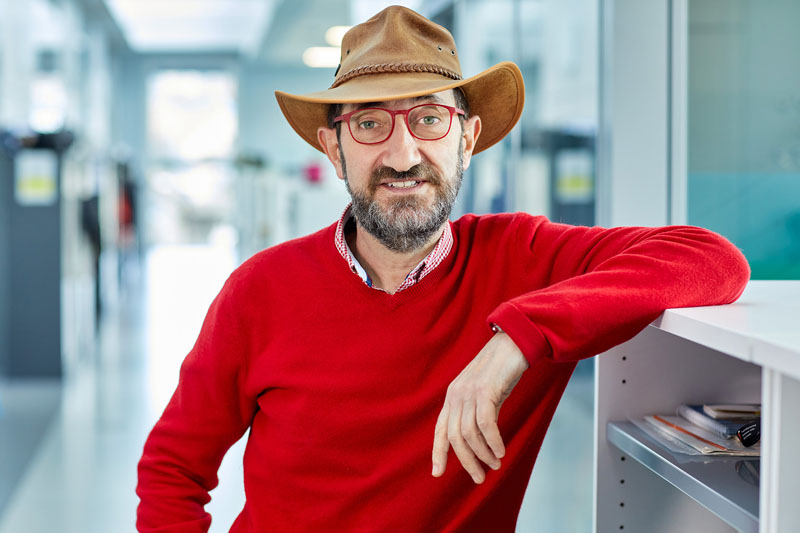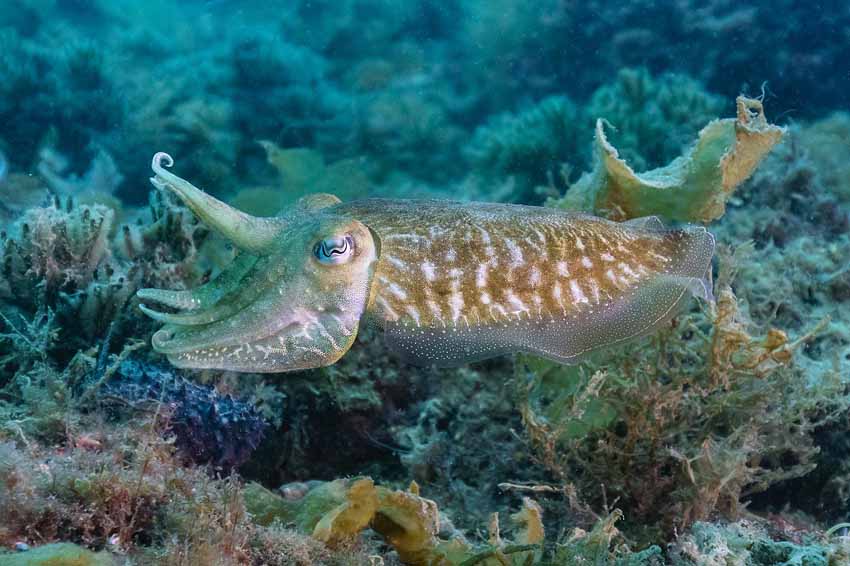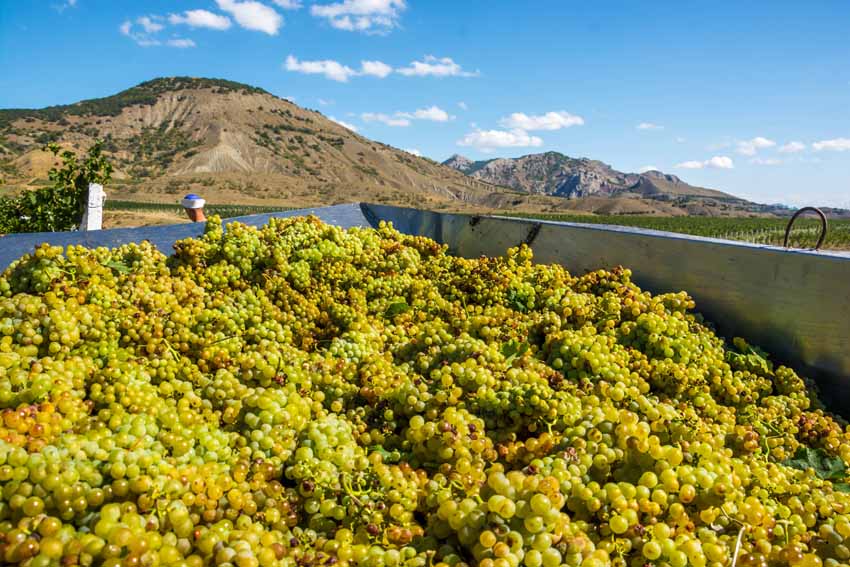The Uhinak Congress is set to be held for the 6th time, addressing the rapid unprecedented oceanic change and its impact on the coast
Últimas noticias
AZTI Researcher Ángel Borja Receives Prestigious Odum Award for International Scientific Career
Una mirada LGTBIQ+ al reino animal
Circular Economy in Action: Valorisation of By-products through Projects like PRIMA NEWFEED
- •Internationally acclaimed experts, together with representatives from the institutions that decide how to tackle the consequences of climate change and the companies that will make the coastal adaptations required are set to meet at Ficoba on October 23rd and 24th.
- Peter Ditlevsen, a professor at the Niels Bohr Institute at Copenhagen University, will give the opening lecture on the first day of the conference, addressing the potential collapse of the Atlantic meridional overturning circulation, an event that would radically change the European climate.
- Marta Coll, the Deputy Director of the Institut de Ciències del Mar, will be the guest speaker opening the second day of the conference, on the subject of the effects of the climate change on marine ecosystems
Irun, 22 July 2024. With approaches ranging from a local viewpoint informing of the initiatives launched by some coastal communities to a regional and global perspective addressing phenomena such as the slowing of the North Atlantic Current, the Uhinak Congress will provide an overall introduction to the problems faced by the coast and its towns and communities due to rising sea levels and ecosystem changes, which in turn give rise to changes in the oceanic resources.
There appears to have been no improvement in the situation since the first Uhinak conference was held. The oceans are undergoing a rapid, unprecedented transformation and we must be aware of the problems, define the potential solutions and put them into practice. In short, it is now more important than ever for climate change to remain on the agenda of the political representatives, experts and companies.
Against this backdrop, the Uhinak Cross-Border Conference on Climate and Coastal Change, held for the sixth time and organised by Ficoba and AZTI, is of major importance. In the words of Guillem Chust, the Manager of AZTI’s Global Marine Ecosystem Change Department, “It is vital for us to understand how climate change is transforming our oceans and coasts so that we can develop effective mitigation and adaptation strategies.”
A current close to collapse and marine ecosystems at serious risk
International experts specialising in a variety of subjects are joining the Uhinak programme of lectures, to be held after the summer. They include two experts of international acclaim who will give the opening presentations on the two days of the congress, with an in-depth specialist approach to critical climate change-related issues.
Peter Ditlevsen, a Professor at Copenhagen University’s Niels Bohr Institute, will give the opening talk on the first day. Highly qualified in climate physics and dynamical systems, Ditlevsen has published over 100 papers and numerous scientific articles. His keynote presentation will focus on warning of a possible collapse of the Atlantic Meridional Overturning Circulation (AMOC), a current of vital importance in the global climate system. Recent studies have shown that this circulation is weakening, and predictions point to a possible collapse halfway through this century if the current trend in greenhouse gas emissions continues.
The speaker starting the second day of the congress will be Marta Coll, the Deputy Director of the Institut de Ciències del Mar. Her research focuses on the changes and threats to marine biodiversity and marine resources caused by human activities such as fishing and the climate change. Coll uses various ecosystem modelling techniques and statistical tools to analyse the dynamics of the marine communities and food webs, and her presentation will highlight the impacts of climate change on marine ecosystems and the mitigation strategies necessary to preserve these vital resources.
One congress, four topics
The congress seeks to address the challenges and solutions related with climate change and its effect on coastal areas, and for maximum efficiency it is split into four thematic areas, each led by co-chairs from the Uhinak Technical Committee.
Jon Sáenz, representing the University of the Basque Country (UPV), will be leading the topic “Planetary Points of No Return”.
Néstor Urrutxua from the UPV’s College of Civil Engineering and Aurélie Bocquet from Gis Littoral Basque will be the co-chairs for the topic of “Extreme Events and Adaptation Measures”.
The topic of “Mitigating Climate Change on the Coasts and Oceans” will be led by Xabier Esteban from Naturklima and Carlos Castillo from Ihobe.
Finally, Malake Muñoz from Ihobe and Nerea Egia from the Gipuzkoa Regional Government will be in charge of the topic of “Governance, Management Tools and Communication”.
Open for registration
The registration process has already begun on the congress website, with early bird rates available until September 30. The registration fee includes entrance to the lectures, conference documentation, access to the exhibition area, coffee break, lunch and a certificate of attendance.
About Uhinak
Uhinak is a Cross-Border Conference on Climate and Coastal Change organised by Ficoba and the AZTI Technology Centre and supported by numerous institutions including the Basque Government’s Department of Industry, Energy Transition and Sustainability, through its public company Ihobe, the Gipuzkoa Regional Government (Department of Sustainability), Communauté d’Agglomération Pays Basque and the Nouvelle Aquitaine Region.
The Uhinak congress is also supported by the Life IP Urban Klima 2050 project, the largest climate action project in the Basque Country co-financed by the European Commission and led by the Basque Government and Ihobe to promote energy and climate transition and achieve a territory resilient to the negative impacts of climate change. With almost 20 million euros of investment and 22 public and private entities involved, the Life IP Urban Klima 2050 project not only works in peri-urban areas and river basins but also focuses on coastal municipalities, where more than 65% of the Basque population lives.







